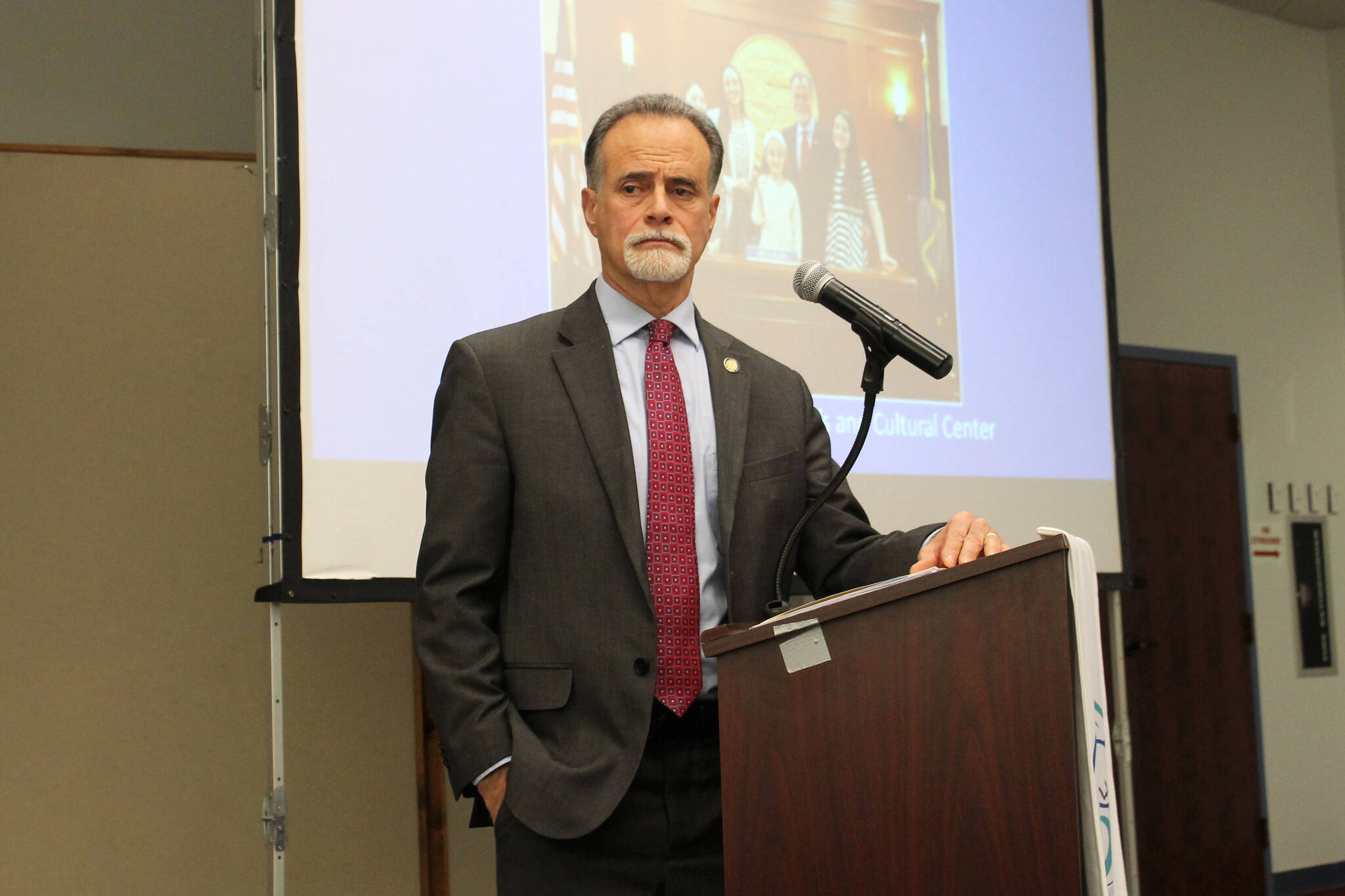A nine-year effort by Alaska Senate President Peter Micciche, R-Soldotna, to overhaul how Alaska’s alcohol industry is regulated stepped closer to the finish line after being voted out of committee last week. Senate Bill 9, sponsored by Micciche, has been nearly a decade in the making and aims to modernize Title 4 of Alaska State Statute, which governs the Alcoholic Beverage Control Board.
Micciche estimates that in the nine years he’s been working to get a bill passed, more than 100 stakeholders have put in roughly 16,000 hours of work. Among the shared goals of those stakeholders were the promotion of a fair business climate, limiting youth access to alcohol and promoting responsible alcohol use, Micciche wrote in a sponsor statement.
Elements of the bill have already become law, such as the reduction of penalties for underage drinking and the reorganization of the Alcoholic Beverage Control Board — both pieces that were included in S.B. 165, which was signed into law in July 2016.
A key focus of the bill is the consolidation of Alaska’s existing licensing and permitting regulations. It creates several new retail license types, such as for breweries, wineries and distilleries, and allows those businesses to stay open until 10 p.m. Limited presentations, classes and fundraising events would also be allowed at those businesses under the bill.
Public convenience licenses, obtained by collecting signatures within a 1-mile radius of the business, would be taken out of statute under S.B. 9. Licenses held by businesses that opened under public convenience language will be converted to a restaurant or eating place license. Peninsula businesses holding public convenience licenses include St. Elias Brewing Company in Soldotna and Fat Olive’s Restaurant in Homer, according to previous Clarion reporting.
The bill also sets a new population limit of one manufacturer retail license per 12,000 people, but gives municipalities the ability to petition the Alcoholic Beverage Control Board for additional licenses allocated to their jurisdiction. Some types of licenses would be exempted from population limits, such as wholesale licenses and manufacturer production licenses.
New endorsements, which expand the boundaries of a licensed premises or expand the activities of a licensed business, would also be established for a variety of establishments, including hotels and motels, restaurants, liquor stores, bowling alleys, golf courses and breweries.
Also covered under the bill are permits, which allow catering and serving activities for a specific time on a specific premise. New permits would be established for some music festivals and for tasting events at liquor stores.
S.B. 9 also establishes penalties for the unauthorized transfer of an alcoholic beverage license and defines the crime of making false statements on applications as perjury. Other general provisions include establishing a keg registration process and allowing alcohol server education courses to be done online.
Groups that have penned letters stating their support for S.B. 9 include the Alaska Cabaret, Hotel, Restaurant and Retailers Association, the Brewers Guild of Alaska, the Matsu Health Foundation, Recover Alaska, Set Free Alaska, the Alaska Mental Health Trust Authority, the Advisory Board on Alcoholism and Drug Abuse and the Alaska Mental Health Board.
Before S.B. 9 becomes a law, it must be read on the floor of the Alaska Senate and passed. It then goes to the House of Representatives, where it must also be passed. When both chambers pass the bill, it goes to Gov. Mike Dunleavy’s office to be signed into law.
The full text of S.B. 9 can be found on the bill’s page on the Alaska Legislature website at akleg.gov.
Reach reporter Ashlyn O’Hara at ashlyn.ohara@peninsulaclarion.com.

